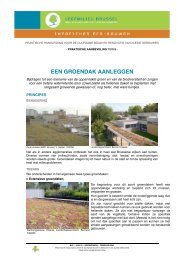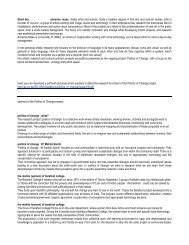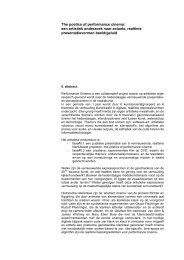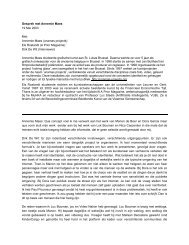MANIFESTO
MANIFESTO
MANIFESTO
You also want an ePaper? Increase the reach of your titles
YUMPU automatically turns print PDFs into web optimized ePapers that Google loves.
Section 9<br />
ECONOMIC TRANSITION TOWARD A SUSTAINABLE<br />
AND EQUITABLE FOOD FUTURE<br />
Current economic and trade regimes have played a major role in creating<br />
perverse incentives that increase carbon emissions, accelerating climate<br />
change. The growth paradigm based on limitless consumption and false<br />
economic indicators such as gross national product (GNP) are pushing countries<br />
and communities toward increasing vulnerability and instability. Trade rules<br />
and economic systems should support the principle of subsidiarity - that is,<br />
favouring local economies and local food systems which reduce our carbon<br />
footprint while increasing democratic participation and the quality of life.<br />
In material, physical, and biological terms the industrial agriculture economy is<br />
a negative economy that requires huge energy inputs. The cost of energy inputs<br />
are externalized and the financial calculus is dependent upon subsidies. This<br />
distorts the real price of food and its real costs in environmental, social, cultural<br />
and political terms.<br />
Current financial and trade regimes continue to perpetuate and enlarge this<br />
negative economy. Instead of rewarding long-distance, uniform, centralized<br />
food systems, policies should support the principle of subsidiary. In other words,<br />
local production for local consumption should be the first tier of food security.<br />
This means shortening the food chain and food miles.<br />
Subsidiarity devolves power downward to local communities, local and regional<br />
governments, instead of setting uniform policies at an international level that<br />
are mandated for all countries, as is done via WTO rules. Localization more<br />
easily increases democracy and control by communities, regions, and nationstates.<br />
Although climate change is a global problem and the global community<br />
must work together for the future of the planet, the solutions and adaptations<br />
must be grounded in local solutions which ensure diversity, the key strategy for<br />
survival.
















